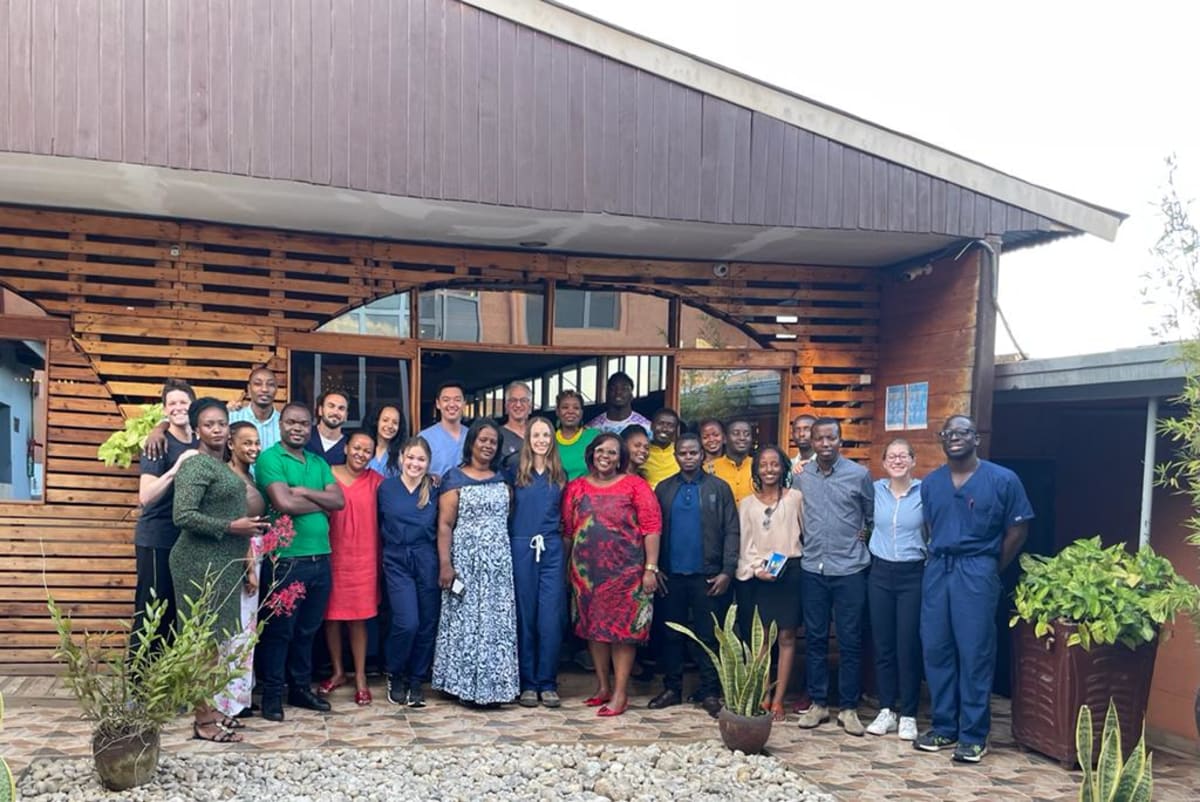Our team plans to conduct trauma training sessions at hospitals in Butare and Ruhengeri, Rwanda, in February and June 2022. These sessions are at the request of staff at these facilities who see a large number of trauma patients. Trauma is a major cause of morbidity and mortality throughout Sub-Saharan Africa and Rwanda is no exception.
Trauma sessions will take place over two days and will involve lectures as well as small group work and simulated patient scenarios. The population served will be staff who work in the Emergency Department at the hospitals or are otherwise involved in the care of trauma patients. This includes physicians, nurses and other ancillary staff.
The initial training session in February 2022 will cover a wide variety of topics related to trauma care with a focus on blunt trauma, given that road traffic injuries are a major cause of traumatic injury in Rwanda. The training sessions in June 2022 will include topics that are chosen by staff based on skills and knowledge that they wish to improve or learn.
A pre-/post-questionnaire will be provided to assess knowledge and attitudes following the initial trauma period. An additional questionnaire will be distributed in the beginning of May 2022 to determine topics to be included in the June training session.
Training sessions will be led by Emergency Medicine physicians from Brown University along with a team of Physician Assistants with extensive experience in emergency care.
This grant application is for travel in February 2022.
The population served in this study are health care staff at two hospitals in Rwanda. These hospitals are located in the Butare (Southern Rwanda) and Ruhengeri (Northern Rwanda).
There is an Emergency Department at the hospital in Butare; however, only a few staff have received training in emergency care. There is an Emergency Medicine specialty training program for physicians in Kigali (the capital of Rwanda). Aside from this opportunity, education on emergency care is lacking. For this reason, staff in Butare and at a smaller hospital in Ruhengeri have requested additional training with a specific focus on trauma.
Our team expects to training 20-30 people at the two different sites as part of this project. Those trained will be on the front lines of providing trauma care. This training will help to improve their knowledge and skills in order to improve patient outcomes.
The expected impact of this training is to improve the knowledge, attitude and practices of health care staff at hospitals in Butare and Ruhengeri, Rwanda. This will be measured using pre-/post-questionnaires. The longterm goal is to improve patient outcomes at these clinical sites. This can be examined via a trauma registry at these sites. The goal of this project is to continue longitudinal training sessions at the two hospitals with an aim of sustaining skills and knowledge. Brown University has a long history of working on projects related to Emergency Medicine in Rwanda. It should not be difficult to continue this project in the future.








The purpose of these training sessions was to improve healthcare worker knowledge and skills in trauma management in Kibuye and Kigali, Rwanda. Despite multiple trauma patients, there are limited opportunities for trauma care education in Rwanda. A total of 53 healthcare workers were trained. Participants were interactive when they had the opportunity to practice their skills during small group and skills sessions. Sessions involved hands on practice patient scenarios, Point-of-Care Ultrasonography (POCUS), and chest tube placement. Participant confidence and knowledge in trauma care was evident as the sessions progressed. This had also been reflected in the pre/post-questionaries and tests showing an increase in post-test scores. Additionally, the participants reported increased confidence of trauma care as well. This should improve trauma patient outcomes at the sites these healthcare workers practice as they have expanded their knowledge and skills in trauma management. Ideally, these trauma sessions will continue to occur in order to provide trauma training education to more healthcare workers to improve patient care and save lives.